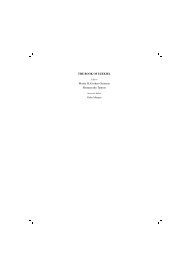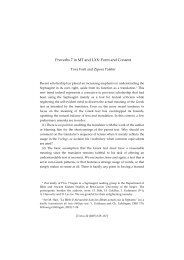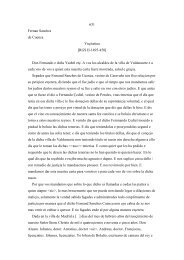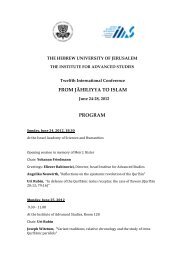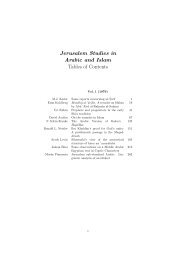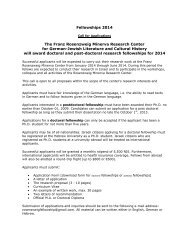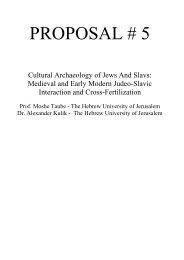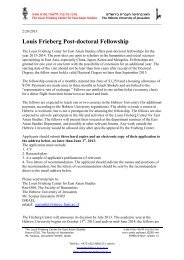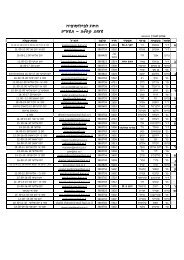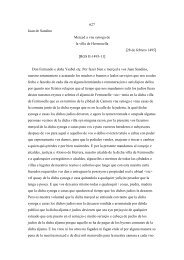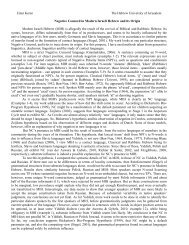Baber Johansen
Baber Johansen
Baber Johansen
Create successful ePaper yourself
Turn your PDF publications into a flip-book with our unique Google optimized e-Paper software.
31<br />
even more radical principle of exclusion, one that is based on a scholarly<br />
form of division of labor only. He writes:<br />
As to those who are not qualified for independent legal reasoning<br />
on matters of legal norms, such as the ordinary men, the<br />
theologians and the scholars of uÒÙl al-fiqh, their voice does not<br />
count in the consensus. Some of the theologians said: the voice of<br />
the ordinary men has to be heard in the consensus. Some of them<br />
said: the voice of the theologians and the scholars of the<br />
methodology of law has to be heard. This [claim] is incorrect,<br />
because the ordinary men do not know the methods of<br />
independent legal reasoning, so they are like children. As far as<br />
the theologians and the scholars of legal methodology are<br />
concerned who do not know all methods [to develop] legal norms,<br />
their voice will not be taken into consideration, much as that of<br />
the scholars of applied law, if they do not know the methodology<br />
of the law (idhÁ lam yaÝrifÙ uÒÙla l-fiqh). 86<br />
In the eleventh century, jurists of the Íanafī and ShafiÝÐ schools of law,<br />
and at least Ibn ÝAqÐl among the ÍanbalÐs, do so explicitly when they<br />
exclude the theologians—and the traditionists—from those whose<br />
opinion counts in the consensus of the jurists, arguing that theologians do<br />
not know how to handle the methods of legal norm derivation.<br />
Even those who do not exclude the theologians from the consensus of the<br />
community of legal scholars implicitly separate the law from theology in<br />
their presentation of the cult. As mentioned before, every law book<br />
begins with a presentation of the five pillars of Islam: the testimony of<br />
the existence of God, ritual purity, the five obligatory prayers, fasting, the<br />
alms-tax, and the pilgrimage. It is striking to see that there is no chapter<br />
on the first pillar of Islam, the shahāda. To testify that there is no God<br />
but God and that MuÎammad is God’s prophet is the first and the most<br />
fundamental "pillar of Islam" that, according to theological reasoning,<br />
not only precedes all other cultic obligations but—as an expression of<br />
belief in God and His Prophet—also is, according to all jurists and<br />
theologians, the condition for their valid performance. The fact that the



